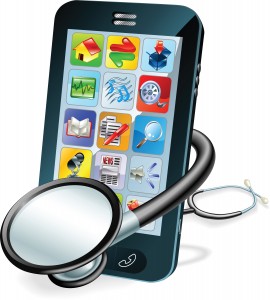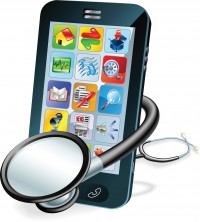Transparency is extremely important to us, so we are letting you know that we may receive a commission on some of links you click on from this page. See our disclaimer.
 Medical News Today reports that “Almost 20% of smartphone users have one or more applications on their device that helps them track or manage their health. It is estimated that by next year, 500 million smartphone users worldwide will be using a health app. There is no doubt that these apps are growing in popularity.”
Medical News Today reports that “Almost 20% of smartphone users have one or more applications on their device that helps them track or manage their health. It is estimated that by next year, 500 million smartphone users worldwide will be using a health app. There is no doubt that these apps are growing in popularity.”
But then MNT asks: “But are they actually beneficial to our health? Or could they do more harm than good?”
A study last year by the IMS Institute for Healthcare Informatics was titled “Patient Apps for Improved Healthcare: From Novelty to Mainstream.” It reviewed “more than 40,000 health care apps available for download on the US Apple iTunes app store, looking specifically at how these apps benefit consumer health,” according to MNT.
The IMS study states: “To date, most efforts in app development have been in the overall wellness category with diet and exercise apps accounting for the majority available. An assessment finds that healthcare apps available today have both limited and simple functionality—the majority do little more than provide information.”
Or, as MNT writes: “Only 16,275 of these apps are directly linked to patient care and treatment, according to the investigators, while the others provide information that in no way improves patient health or well-being.”
So what needs to be done? According to MNT, in a American Academy of Orthopedic Surgeons report, Dr. Orrin I. Franko, of the Department of Orthopedics at the University of California-San Diego, writes: “The approval process generally requires that the app meets each company's guidelines and pertain to content matter, but the process does not validate the data contained within the program for medical accuracy or functionality before making the app available for public use.”

0 Comments